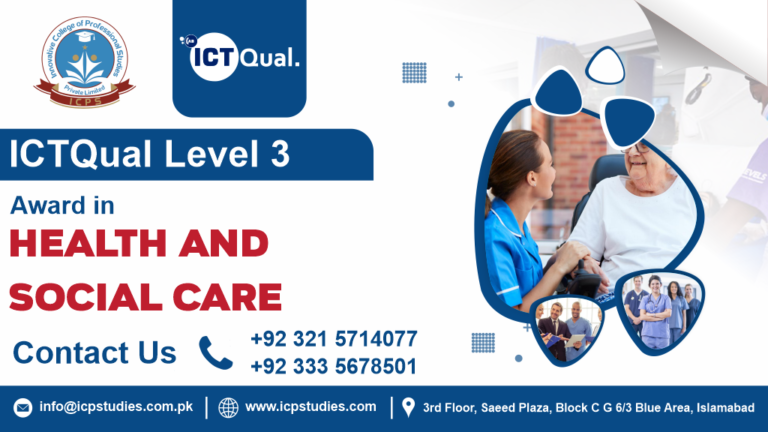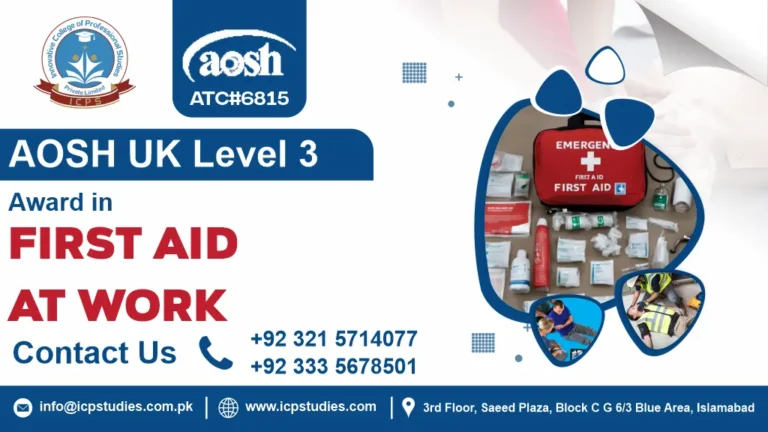In the dynamic landscape of corporate training, staying ahead of the curve is essential for professionals looking to empower themselves with the latest tools and techniques. One such opportunity arises with the ICQual Level 4 Award in Corporate Train the Trainer, a comprehensive program designed to equip trainers with the skills and knowledge needed to excel in their roles.
The ICQual Level 4 Award in Corporate Train the Trainer is a prestigious qualification recognized globally for its emphasis on training excellence. Whether you’re a seasoned trainer seeking to refine your skills or a newcomer aspiring to enter the field, this award offers a structured pathway to enhance your capabilities and credibility.
The ICQual Level 4 Award is designed to accommodate diverse learning needs and preferences. Participants can choose from a variety of delivery modes, including face-to-face workshops, online courses, blended learning approaches, and self-paced study options. This flexibility enables busy professionals to balance their training commitments with their professional and personal responsibilities.
All About ICQual Level 4 Award in Corporate Train the Trainer
Course Overview
The ICQual Level 4 Award in Corporate Train the Trainer is a professional qualification designed to enhance the skills and knowledge of individuals involved in corporate training. Developed by ICQual, a leading provider of training and development solutions, this award is recognized internationally for its focus on training excellence and practical application.
The ICQual Level 4 Award in Corporate Train the Trainer is a valuable qualification for individuals seeking to excel in corporate training roles. By equipping participants with the knowledge, skills, and confidence needed to design, deliver, and evaluate effective training programs, this award empowers trainers to make a positive impact on organizational learning and development.
Study Units
- Foundations of Adult Learning
- Advanced Instructional Design Techniques
- Facilitation Mastery
- Customizing Training Programs
- Evaluation and Feedback Strategies
- Technology Integration in Training
- Professional Development for Trainers
- Training Documentation and Records Management
Entry Requirements
- Age Requirement: Candidates must be at least 18 years old.
- Professional Background: Applicants should have experience in corporate training, human resources, or a related field.
- Educational Qualifications: A minimum of a Level 3 qualification in training, management, or a related area is generally required.
- Training Experience: Prior experience in delivering training sessions or workshops is preferred.
- Communication Skills: Strong verbal and written communication skills are essential for effective training delivery.
- Assessment of Prior Learning: Candidates may need to provide evidence of prior learning or relevant experience in corporate environments.
- Understanding of Training Needs Analysis: Familiarity with identifying training needs and developing training programs accordingly.
- Basic IT Skills: Proficiency in using IT tools for preparing training materials and delivering sessions.
- Commitment to Continuous Professional Development: A willingness to engage in ongoing learning and stay updated on training methodologies and best practices.
These requirements may vary by institution, so it’s advisable to check with the specific training provider for their exact criteria.
4o mini
The ICTQual Level 4 Award in Corporate Train the Trainer is designed for:
- Corporate Trainers: Individuals responsible for delivering training programs within organizations.
- HR Professionals: Human resources personnel focused on employee development and training initiatives.
- Team Leaders and Managers: Leaders looking to enhance their skills in training and developing their teams.
- Learning and Development Specialists: Professionals dedicated to improving organizational performance through training.
- Instructional Designers: Those involved in creating training materials and programs tailored to corporate needs.
- Change Management Consultants: Individuals helping organizations manage transitions through effective training.
- Coaches and Mentors: Professionals looking to formalize their training skills and methodologies.
This course is ideal for anyone seeking to improve their ability to train others effectively in a corporate environment, ensuring that training aligns with organizational goals and enhances employee performance.
Learning Outcomes
This course is designed for individuals who are interested in enhancing their skills and knowledge in the field of adult learning, instructional design, facilitation, and training program customization. It is particularly suitable for:
- Trainers and Facilitators: Professionals who are responsible for designing and delivering training programs within organizations. This course provides them with the tools and techniques to create engaging and effective learning experiences for adult learners.
- Learning and Development Specialists: Individuals who work in learning and development departments or roles within organizations. They can benefit from this course by gaining insights into best practices in training design, delivery, and evaluation.
- Human Resources Professionals: HR professionals who are involved in employee training and development initiatives can enhance their skills in designing and customizing training programs to meet organizational goals and objectives.
- Educators and Instructors: Teachers, educators, and instructors who work with adult learners in various settings, such as vocational training, continuing education, or corporate training programs. They can learn new instructional techniques and strategies to better engage and support their learners.
- Subject Matter Experts (SMEs) Transitioning into Training Roles: SMEs who are transitioning into training roles within their organizations can benefit from this course by gaining a solid foundation in adult learning principles, instructional design methodologies, and facilitation techniques.
- Professionals Seeking Career Advancement: Individuals who wish to advance their careers in training and development or related fields can strengthen their qualifications and expertise by completing this course.
- Anyone Passionate about Training and Development: Individuals who have a passion for helping others learn and grow can pursue this course to gain a deeper understanding of training principles and practices, regardless of their current occupation or industry.
Overall, this course is suitable for anyone who is involved in designing, delivering, or managing training programs for adult learners in corporate, educational, or organizational settings. It offers valuable insights, practical skills, and professional development opportunities for individuals seeking to excel in the field of training and development.
FAQs about ICTQual Level 4 Award in Corporate Train the Trainer







